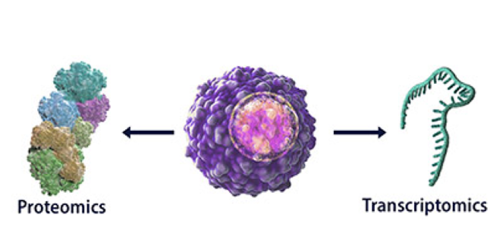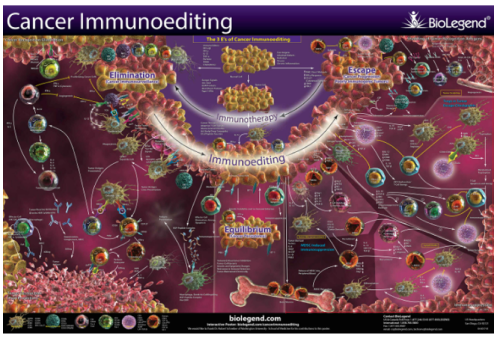Cancer Resources
Discover our resources to learn about the pathways and treatments in cancer biology. From the tumor microenvironment to new targets for immunotherapies, you can explore our educational resources and find our reagents to empower your cancer research.
Webinar: Stimulation With a Superagonistic Anti-CD28 Antibody Shows Treg Expansion
Rebecca Nickle, PhD, of BioLegend discusses how our antibody clone, S20013B, affects T cell and Treg development via analysis in flow cytometry, multiomics, cell culturing, and LEGENDplex™ immunoassay experiments.
Webinar: Cancer Neoantigens as Targets for Natural and Therapeutic Anti-Tumor Responses
Dr. Robert Schreiber addresses how mouse and human cancers have been used to identify therapeutically useful tumor neoantigens, how these neoantigens can form the basis for personalized cancer vaccines, and what additional forms of therapy are needed to optimize the therapeutic effects of personalized cancer vaccines.
The first inhibitor targeting KRAS G12C was recently approved for the treatment of locally advanced or metastatic NSCLC. In this webinar, Dr. Febe van Maldegem of The Francis Crick Institute will discuss the group's development of an Imaging Mass Cytometry workflow to phenotypically and spatially characterize the tumor microenvironment in mouse tissues. Using this approach, they have shown how targeted KRAS G12C inhibition leads to a dramatic remodeling of the lung tumor microenvironment.
A Deeper View of Cancer with Single-Cell Multiomics
See how researchers are using our TotalSeq™ reagents to accelerate cancer research by determining mechanisms of regulation of immune checkpoint inhibitors and creating an atlas of human tumors.

Unlocking immuno-oncology with cancer immunotherapy
Our latest blog discusses reagents and considerations for advancing immuno-oncology research. Learn how our immunoassays, antibodies, and recombinant proteins can drive your research forward.
STING Activators as
Cancer Therapeutics
Read about the STING pathway and how researchers are promoting immune surveillance, and testing novel cancer therapies.
Cancer Immunotherapy
and Immune Checkpoints
Understand how our biofunctional antibodies target immune checkpoints and aid in immunotherapy research.
Resource Guides
Browse our resource guides to learn how our research solutions drive cancer research.

Flow Cytometry
Research Tools
Resource Guide

Cell Culture
Applications
Resource Guide

Neuroscience
Resource Guide

Microscopy Reagents
Resource Guide

Immunoassays
Resource Guide

Multiomics and TotalSeq™ Reagents
Resource Guide
Posters
Our Cancer Immunoediting poster describes the mechanisms by which the immune system responds to cancer and can be broadly split into three phases: elimination, equilibrium, and escape.
During the elimination phase, the immune system surveils and eliminates tumor cells through the production of inflammatory cytokines, recognition of tumor antigens by dendritic cells, or activation of natural killer cells.
Equilibrium describes a phase of cancer persistence in which there is a selection for tumor cells that were not eliminated. Tumor cells are selected through immune cell exhaustion or inhibition, genetic and epigenetic changes, or resistance to immune detection.
Escape occurs when tumors cells have avoided immune detection and are able to grow and expand.







Follow Us